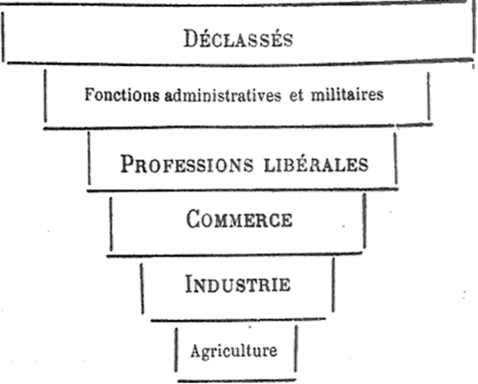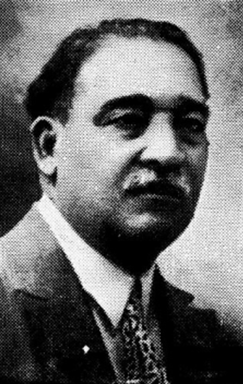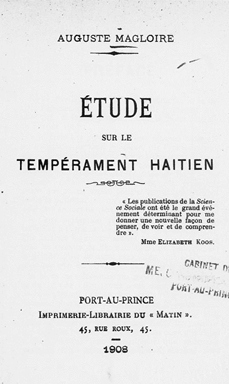"The Debate Over Education" by the Island Luminous Editorial Board
Michel Oreste was unable to improve education in Haiti. But his sincere attempt shows that there was widespread interest in how education could help to advance the nation. Many Haitians believed that education was paramount to Haiti’s success. But they disagreed on how to improve it. Auguste Magloire, a popular thinker who wrote in Haiti’s daily newspaper, le Matin, insisted that schools should produce only several leaders and mostly workers. But his rivals, Antoine Michel and Jean-Baptiste Dorsainvil, rebuked Magloire as an elitist who wanted to exploit the masses.
In his book, Etude sur le temperament haïtien (1908), Magloire tried to explain why classical education, like in France, would not succeed in Haiti. "In France," he said, "the education system is intellectually intense." In Haiti, however, it was only "a mere imitation." Magloire averred that "we copied blindly and indiscriminately, without any discussion." He believed that classical education was inappropriate when Haiti needed cultivators and not more politicians who would only bicker with one another. Haiti already had too many politicians and intellectuals, he said. "It is now impossible to award public service to everyone who has proven they deserve it." He quotes the old liberal thinker, Edmond Paul, when he states that "the balance between positions earned and awarded makes it very hard to rule." This was especially true, he said, because leaders will promote "individuals who share their own political predisposition and not those who have demonstrated superior intellectual capabilities."
 To illustrate his point, Magloire sketched two pyramids. One was inverted and was meant to represent Haiti, where supposedly there were too many intellectuals and too few workers. Magloire concluded that schools had to educate Haitians to do practical work and thus help to reverse this trend.
To illustrate his point, Magloire sketched two pyramids. One was inverted and was meant to represent Haiti, where supposedly there were too many intellectuals and too few workers. Magloire concluded that schools had to educate Haitians to do practical work and thus help to reverse this trend.
As we will see later in history, Magloire’s ideas about education were very similar to those held by the Americans would occupy Haiti between 1915 and 1934. Hence it is no surprise that many Haitians would voluntarily work with the Americans to introduce vocational education to Haiti. Also it is no shock that other Haitians would protest vocational education, which was seen by some as a means to indoctrinate workers and bolster the status quo.

